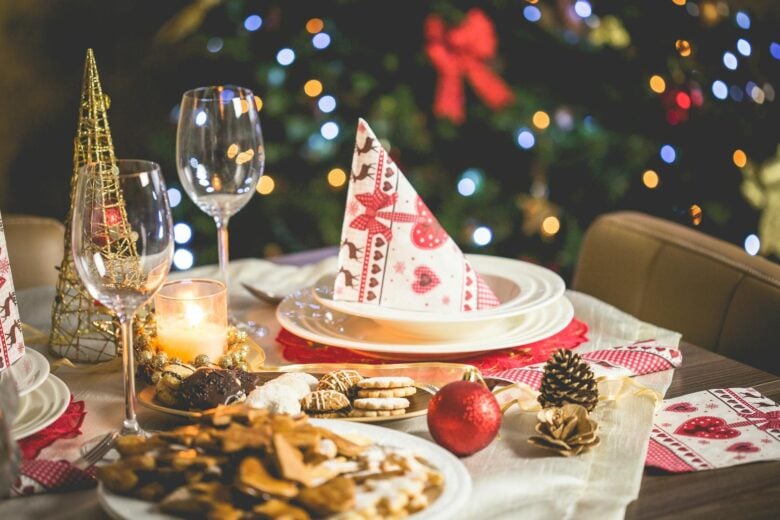For many people, the holidays are an opportunity to gather with friends and family and enjoy delicious food. However, it’s also a social event in an intimate setting. If you’re considering hosting a fancy dinner or have been invited to one, it’s a good idea to keep a few things in mind. After reading this article, you’ll have a solid understanding of the basics of dinner etiquette to ensure a pleasant experience for everyone at the table.
The Invitation
To be as welcoming as possible, it’s best to send your invitation well in advance. Ideally, 4 to 6 weeks ahead of time, so guests have ample time to prepare. Be as specific as possible in your invitation to avoid confusion about the time, location, and any potential theme or dress code. Also, let guests know whether children are welcome and if there will be a special table for them.
Once you’ve received an invitation, it’s important to respond promptly. Let the hosts know if you’ll be attending and stick to your word. If you have food allergies or specific dietary restrictions, it’s courteous to communicate this in advance. If you suddenly find yourself unable to attend, notify the hosts as soon as possible so they can adjust the seating arrangements and menu accordingly.
Dress Code
A true gentleman knows how to dress for the occasion. During the holidays, it’s common to dress nicely, though the specific dress code can vary. Dark colors like black, navy, and burgundy are popular, but many also see this as an opportunity to wear bold accents, such as bright red, green, and gold.
If the invitation doesn’t provide specific guidelines, it’s best to opt for a neat, festive outfit. Consider a well-fitted shirt paired with a matching sweater and blazer. Avoid overly casual clothing and ensure your shoes are well-kept. For a formal dinner, it’s appropriate to wear a suit with a tie or bow tie. Again, feel free to experiment with shades and subtle patterns.

Arrival and Greeting
Aim to arrive on time for the dinner. This will give you the chance to enter calmly, hang up your coat, and introduce yourself to other guests. However, don’t arrive more than half an hour early, as this could interfere with preparations. A firm handshake and a sincere smile are always great ways to start. Take the time to chat with everyone before sitting down to eat.
Seating and Table Manners
When it comes to seating, it’s important to know where to sit. Traditionally, the guest of honor is placed at the head of the table, with other guests seated in order of importance on either side. If you’re unsure, follow the host’s instructions. Once everyone is seated, wait for the hosts to begin eating before starting. Table manners are very important. Use the silverware from the outside in, keep your elbows close to your body, chew with your mouth closed, and avoid speaking with your mouth full. Keep your napkin on your lap when not eating and use it to wipe your mouth when necessary.
Drinks and Toasting
If you’re comfortable drinking alcohol, it’s wise to enjoy a modest amount with each course. If you’re unfamiliar with the drinks being served, feel free to ask the hosts for recommendations. When a toast is made, raise your glass and make eye contact with the person offering the toast. It’s not necessary to drink the entire contents of your glass, but bring it to your lips as a sign of respect.

Conversation Topics
Avoid sensitive and controversial topics like politics, religion, and gossip. Appropriate topics include vacations, hobbies, books, and movies. It’s also important not to talk too much about yourself. Listen actively by maintaining eye contact and nodding. Ask questions to keep the conversation varied and engaging. Don’t place your phone on the table; it signals that you don’t find the conversation important. Instead, keep your phone on silent so you can enjoy uninterrupted conversations.
Gratitude and Departure
After dinner, it’s appropriate to personally thank your host and hostess for their efforts. It’s also appreciated if you offer to help with clearing the table or tidying up. A text or email the next day is usually a pleasant surprise. Before leaving, make sure to let the hosts know that you enjoyed the evening and thank them again for their hospitality.
By following these etiquette rules during holiday dinners, you’ll not only make a positive impression on the hosts and other guests but also contribute to a pleasant experience for everyone involved. Paying attention to details and showing respect for traditions will ensure that your holiday dinner is not only a culinary delight but also a socially enjoyable event.

